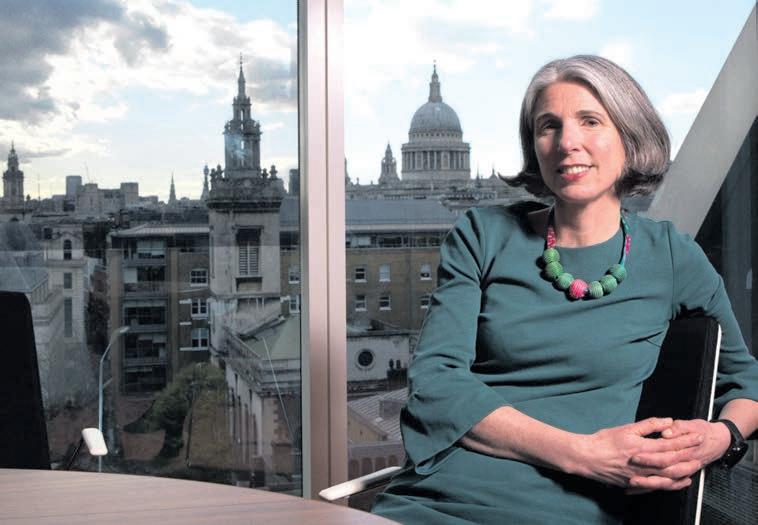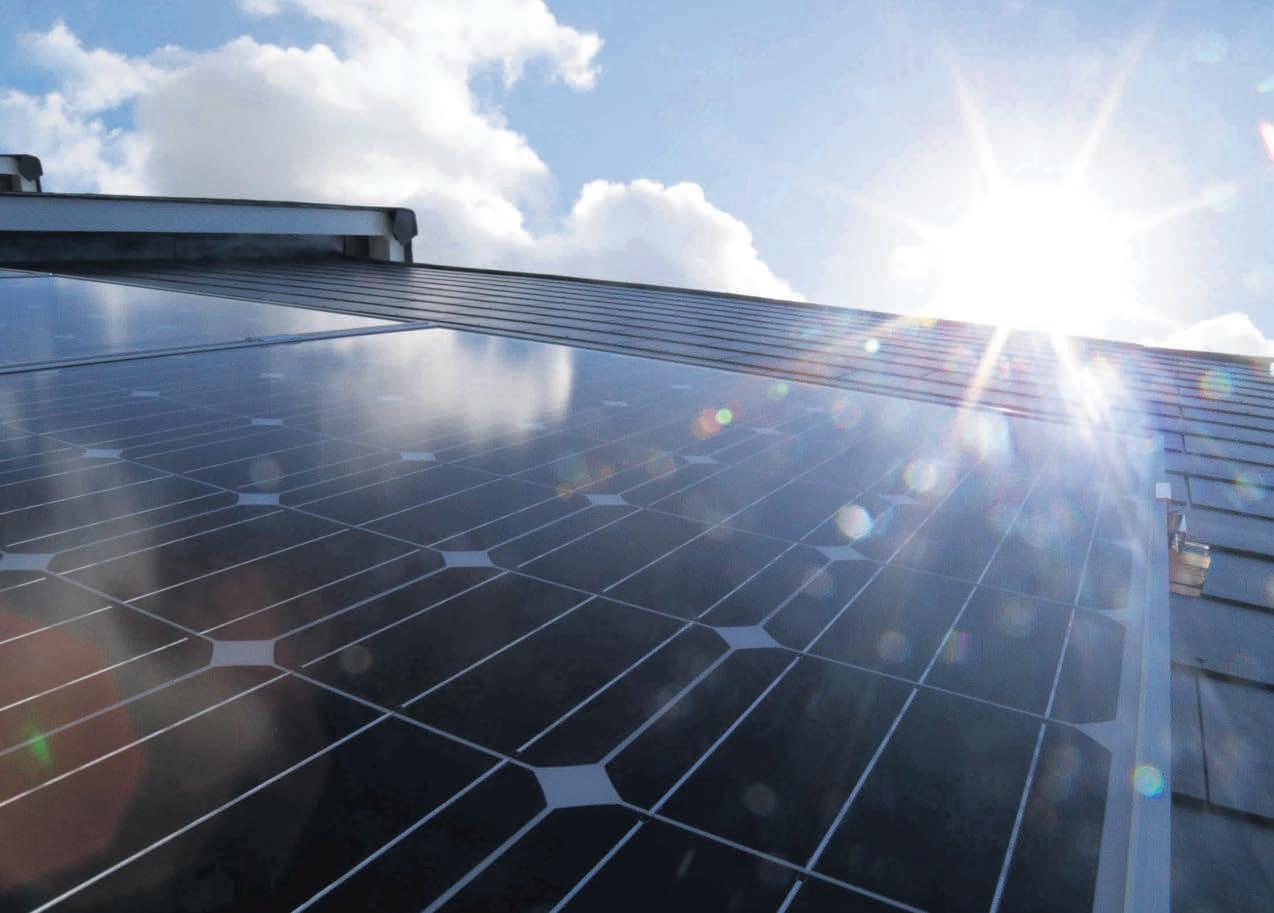
4 minute read
THE NOTE BOOK
from Monday 5 June 2023
by cityam
Spoiler alert: It’s grit that’s lacking in final Succession ‘winner’



AFTERfive days of ‘spoiler alert’ dodging, I settled down to watch the finale of Succession this weekend. Having caught the odd review headline, I was poised for something special. And yet … Why did I find the ending just a bit disappointing?
The answer, of course, is simple: It Should Have Been Shiv. Tom’s coronation was probably more poetic and maybe even more dramatic. But for Waystar Royco and its new owners GoJo, he was absolutely the wrong choice.

Consistently throughout the show it was Shiv who proved herself best able to navigate a crisis, to think differently and clearly, and –more importantly –who demonstrated that critical CEO quality … Grit.


RAIN’S TOUGH WEATHER

Pregnant, grieving and in the midst of a messy separation, Shiv was the only cast member who was always able to push aside the emotions and act strategically. That is until the scriptwriters decided to take a U-turn towards Tom –a character who, until that point, had shown himself to be middle-management material at best. And therein lies a lesson for corporate Britain as it continues to underperform in recognising the strength of female leadership. If it is grit that matters most –that ability to cut through the clutter and manage the tough stuff –then leadership equality must come faster. That 90 per cent of CEOs of Britain’s largest public companies are men is, in the considered words of Logan Roy, “a f****** disgrace”.
In my view it’s not just because of the particularly unsavoury nature of the allegations engulfing the CBI that the organisation has turned to the impressively calm Rain Newton-Smith in its moment of existential crisis. She’s been called in to take on this particular reputational rescue mission because she has the rare combination of empathy and steel that’ll be essential to save the 60-year-old institution from the mess her (male) predecessors created. All power to her elbow as she tries to pull the CBI back from the brink.
£ A piece of Monday advice from secretary of state for levelling up, Michael Gove. I talked to Michael last week about all things crisis and he had this gem to offer: “The first thing is, if you’re going to make a big announcement you shouldn’t do it on a Monday .. you need to have that full working day immediately beforehand to rehearse, to make sure that you’ve got everything absolutely right. Coming out of the weekend straight into the Monday –tiny thing, big risk.”
£ Watch out for our next episode with broadcaster Aasmah Mir, who now co-hosts The Times’s breakfast show. She’s a woman who, after enduring a childhood of racism and other traumas, suddenly found herself as a single mum with a new job that required a 3am alarm call. Anyone wanting to learn more about the power of female grit should read her brilliant new book A Pebble in the Throat.
A Testament To Perseverance
Baroness Martha Lane Fox, for me, provides the ultimate case study that exposes the characterisation of grit as a mostly male quality, as being well wide of the mark. One of the first guests to join me on my podcast Crisis What Crisis, Martha told the story of her rise to success with Lastminute.com against a backdrop of misogyny, being ignored in investor meetings and suffering the focus of some pretty sexist media coverage when the business hit a low. But it was her story of recovery, following the 2004 car accident that almost claimed her life, which ultimately proved Martha to be the Goddess of Grit. She told me: “I do think that’s one of the things about crisis, to just keep going. You may not know what that one step in front of the next step –which for me was quite literal – will be but … just keep going.”
I was lucky enough to see Martha speak at a London conference just a few weeks ago, now knowing that just getting onto a stage is an allconsuming exercise in pain control for her. She delivered yet another brilliant, funny and inspiring performance to a roomful of HR execs. The best possible recruitment advert for the power of female leadership.
THEInternational Energy Agency is predicting a bumper year for renewables –with generation capacity worldwide to jump by a third in 2023 alone – rising to 4,500GW, enough energy to power mega consumers China and the US combined.
The lion’s share of this increase will be driven by solar power, around two-thirds in total, which is being embraced on both an industrial scale and also by savvy households turning to cheap, clean energy over ultra-expensive gas, which climbed to record highs following Russia’s invasion of Ukraine last year.
In its latest monthly report, domestic industry certifier MCS tells us that while the various rows over onshore wind turbines and delayed nuclear power plants have dominated column inches, a rooftop revolution is taking place in the UK.
Encouragingly, households are truly embracing solar power with a record number of sub-50-kilowatt systems installed in March –totalling 17,595 in all, or 568 per day.
If the current pattern of growth continues, about 230,000 installations will be made in 2023, which will raise the number of solar panels on roofs from 1.24m to 1.47m across the UK.


This is great news, and reflects that solar is cheaper than ever, with a household currently able to set up a solar panel system for as little as £5,000.
Money Saving Expert now predicts a payback time of under a decade for average consumers.
There is support for solar panels with a handful of government grants – such as the Energy Company Obligation scheme, aimed at supporting low-income households with subsidies for renewable obligations.
Separately, the Smart Export Guarantee (SEG) requires suppliers with 150,000 plus customers to pay homeowners for any unused solar-generated electricity. This means you can earn money back once you've installed solar panels, increasing the rate of return on investment.
Last year, the government also announced households would be able to pay zero per cent VAT on any installed energy-saving products including solar panels, electric heat pumps and cavity wall insulation.
Meanwhile, the push factors of Russia’s invasion of Ukraine and the domestic supplier crisis, which helped drive energy bills to record heights, are both ongoing.
Yet all these measures are not enough when the government is targeting 70GW of solar power generation by 2035 – 20GW more than ambitions for overall offshore wind capacity.










